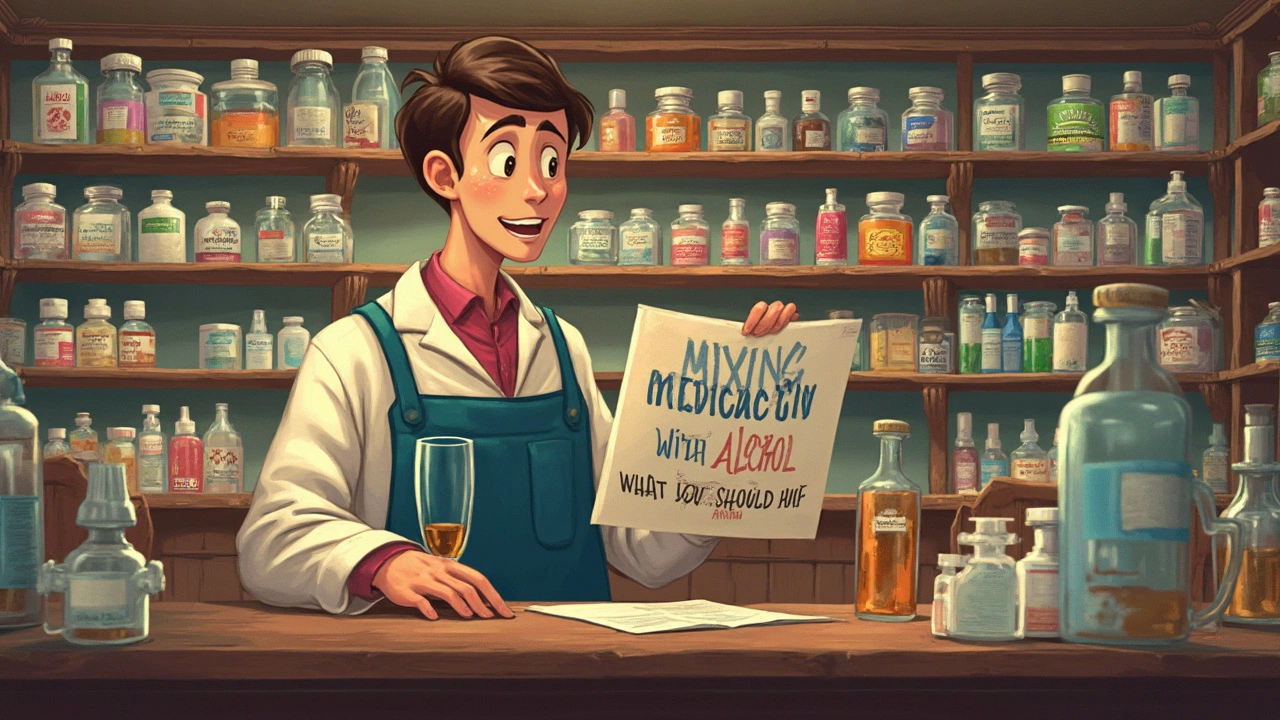Alcohol
Did you know alcohol can change how many medicines work and make side effects worse? A single drink might be harmless for some drugs, but for others it can cause dangerous drowsiness, higher blood pressure swings, or an increased risk of liver damage. This page gives clear, practical advice so you can make safer choices.
How alcohol affects medicines
Alcohol doesn’t act alone. It mixes with drugs in two main ways: by changing how your body breaks the drug down, and by adding side effects. For example, drinking with sedating meds (like hydroxyzine/Atarax) often causes extra sleepiness and slower breathing. With blood pressure meds such as clonidine, alcohol can cause dizziness or sudden drops in blood pressure.
Bupropion (Wellbutrin) and alcohol deserve a special note: combining them can raise the chance of seizures and worsen mood for some people. Pain, gout, and liver-active drugs—think febuxostat or certain supplements—can be harder on the liver when alcohol is present. Birth control pills like desogestrel-ethinyl estradiol aren’t made safer by drinking; alcohol can affect nutrition and liver enzymes that help process hormones.
Practical safety tips you can use today
Read the medicine label. If it warns about alcohol, take that seriously. Labels often say the exact risks and whether you should avoid alcohol altogether.
Ask your pharmacist one quick question: "Is it safe to drink while taking this?" Pharmacists know meds inside out and can tell you whether a short drink is risky or if you should skip alcohol until you finish the course.
When in doubt, wait. If you just started a new drug or changed dose, hold off on alcohol for several days while your body adjusts. That reduces surprises like extreme drowsiness or lightheadedness.
Watch for warning signs: severe sleepiness, confusion, fainting, fast heartbeat, new stomach pain, or yellow skin/eyes. Any of these mean stop drinking and call your provider or seek urgent care.
Watch your mental health. Alcohol can blunt antidepressants and make depression or anxiety worse. If you’re on depression meds or augmentation therapy (like bupropion + an SSRI), talk to your doctor about safe drinking limits or full abstinence.
Try small, practical habits: keep a water bottle on hand, limit to one drink when you know a medication is low-risk, never mix alcohol with driving or operating machinery, and use apps or pharmacist tips to track prescriptions and reminders.
If you’re pregnant, trying to get pregnant, or have liver disease, avoid alcohol entirely. For any complex combos—multiple prescriptions, herbal supplements, or heavy drinking—get a personalized plan from your doctor or pharmacist. Our site has detailed posts on specific meds (clonidine, hydroxyzine, bupropion, febuxostat) if you want more tailored info.
Questions? Use our contact page to ask about a specific medicine and alcohol. A quick check can keep you safe and help your treatment work the way it should.

Cephalexin and Alcohol: Mixing the Two Safely
Mixing cephalexin, a common antibiotic, with alcohol can raise questions about safety and effectiveness. Understanding the potential interactions helps in making informed decisions. While some effects might be mild, it's essential to know how combining the two can impact your health. This article breaks down what you need to know, offering practical tips and facts to guide you.
Read More